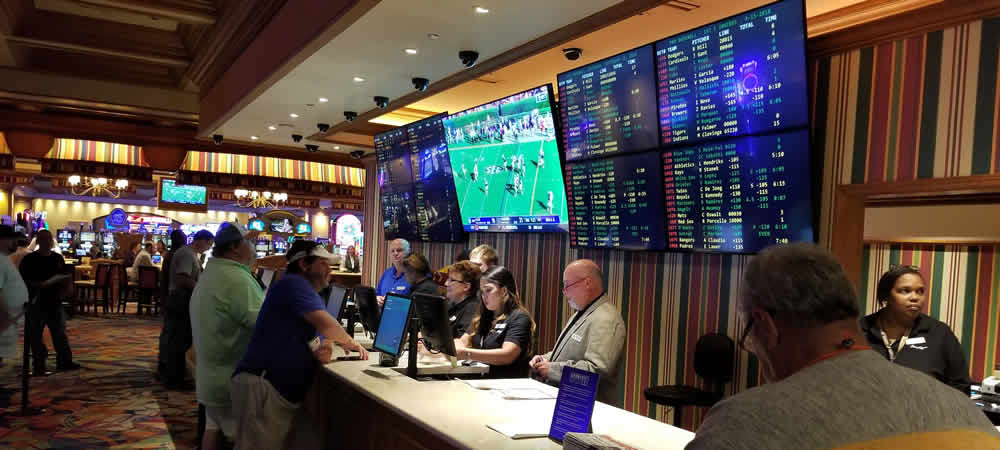- House Bill 498 focuses on sports betting tax rates and specific government allocations.
- There is some confusion as to how the bill’s tax earmarks will work in practice.
- Louisiana is currently debating five different sports wagering legalization bills.
BATON ROUGE, La. – On Tuesday, Louisiana legislators met to discuss sports betting legalization, focusing specifically on Democrat Rep. Neil Abramson’s proposal (HB 498). However, the bill’s sports betting aspects were secondary to its allocations of wagering revenues.
Specifically, the Louisiana House was interested in discussing HB 498’s take on where sports betting tax revenue would go. The main two targets of concern appear to be public early-education funding and gambling addiction helpline services.
As amended in its engrossed version (which was successfully passed out of committee), HB 498 would establish an 11 percent tax on sportsbook revenue, as well as an annually-recurring $5000 licensing fee for operators.
Per the proposal, the “avails” (i.e. the “uses”) of that 11 percent tax revenue will be earmarked for the Louisiana Early Childhood Education Fund. As with lottery revenues, tying betting/gambling taxes to education is a common practice nationwide.
However, the bill also earmarks a further one percent of gaming revenue taxes that will go towards the state’s Compulsive and Problem Gaming Fund. The total contributed amount thereof is not to exceed $100,000 in any fiscal year.
This particular fund already exists, thanks to Louisiana’s large casino gambling market, but it is unclear where that extra one percent is coming from.
In order for these two contributions to work mathematically, the effective tax rate on sports wagering in Louisiana would have to be at least 12 percent, not 11 percent. Otherwise, the totals as attributed to their separate causes are misrepresented.
Adding confusion to the process is the fact that HB 498 also assigns and earmarks even more taxation allotments.
For example, the proposal allows individual host parishes in Louisiana to add a maximum four percent tax on sportsbook revenues, which potentially raises the total tax rate on bookmakers to 15 percent, depending on where in the state they operate.
Further, while all collected taxes will be managed by the “division in the office of state police”, the law prescribes an undefined amount of these taxes to be used “in the implementation, administration, and enforcement” of the gambling market’s rules and regulations.
Again, exactly how much of the total tax burden on sportsbook operators will go to which government agency or service initiative is unclear.
In Tuesday’s meeting, Rep. John Morris (R-14) explained the confusion as a simple part of the ongoing process of compromise and amendment.
“We dedicate a lot of stuff and then we forget about it until we try to undo it [in the amendment process]. I think early childhood education is something we care about, but I’ve learned that we can give but not take away around here.”
Specifics notwithstanding, this year is shaping up to be more successful in establishing legal sports betting in Louisiana than last year, where several proposals died in their respective chambers.
In order to pass into law, HB 498 must be approved by statewide voter referendum, as it constitutes a fundamental tax expansion.
Currently, the Louisiana legislature is considering five separate sports wagering bills, each addressing different aspects of the industry. In addition to HB 498, these include HB 469, HB 500, HB 587, and SB 153.
Advertising Disclosure
In order to provide you with the best independent sports betting news and content LegalSportsBetting.com may receive a commission from partners when you make a purchase through a link on our site.
News tags: LA HB 469 | LA HB 498 | LA HB 587 | LA SB 153 | Louisiana | Louisiana sports betting

Andy has been writing professionally for nearly two decades, with the last three years being dedicated to his primary passions: sports wagering news and gambling industry analyses. A walk-on punter, Andy has a particular interest in professional football, baseball, and horse racing betting. Come early May, you can always catch Andy – clad in all white, mint julep in hand – on Millionaires Row at Churchill Downs. In his dreams.


 Bitcoin Sports Betting Sites
Bitcoin Sports Betting Sites Best Online Sports Betting
Best Online Sports Betting Famous Sports Bettors
Famous Sports Bettors States With Legal Sports Betting
States With Legal Sports Betting Sports Betting Events
Sports Betting Events




